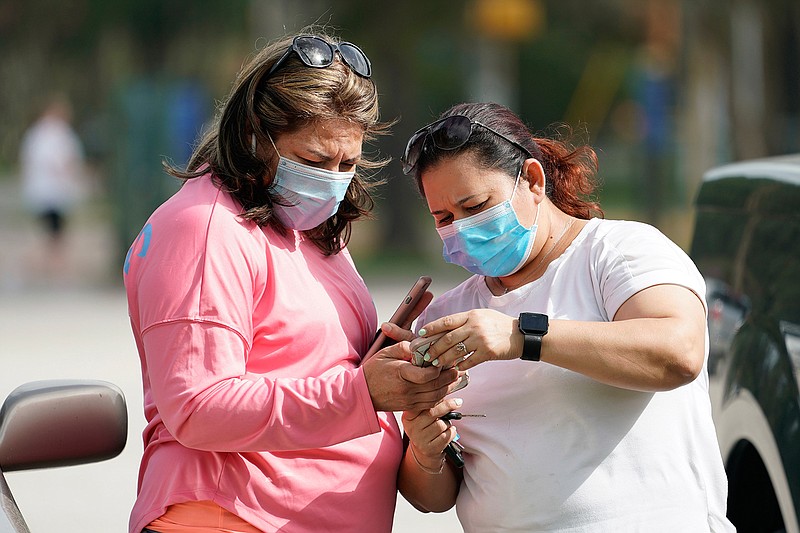HOUSTON - A change in how Houston area hospitals report intensive care unit capacity during the coronavirus pandemic has drawn criticism from the top two locally elected officials who are questioning if the medical facilities are not being fully transparent.
But officials within the Texas Medical Center, a sprawling medical complex made up of Houston's major hospitals, say the change was done to provide more accurate information and reassure the public that it was not running out of intensive care unit or ICU beds for patients.
As coronavirus cases and hospitalizations have continued to rise in Houston, the Texas Medical Center has been providing a daily pandemic-related update on its website, including charts on ICU capacity, when base ICU capacity could be exceeded, when sustainable surge capacity could be exceeded and other metrics from its local member hospitals.
Last week, the medical center reported that its normal ICU, capacity was at 100%, prompting concerns from the public. The medical center also warned that "ICU capacity is becoming increasingly stretched."
But some of the hospital heads later held a news conference in an effort to tamp down public alarm.
Adding to the concern from some in the public, the medical center then took its charts offline for several days and when they reappeared, references to sustainable and unsustainable surge capacity and when those could be exceeded were replaced with discussion of different phases of intensive care. Many of the bright yellow and red colors used to highlight concern and warnings in some of the old charts were replaced with shades of blue.
But Dr. James McDeavitt, senior vice president and dean of clinical affairs at Baylor College of Medicine, one of the member institutions within the medical center, said the way the data was being presented to the public gave the wrong information about the actual status of ICU capacity.
"Not to minimize the fact that we're getting stressed at hospitals, but that was the wrong message for people to take away. I think that was the underlying concern because we had plenty of capacity," McDeavitt said Wednesday.
The hospitals in the medical center have reached their phase one ICU capacity, which is 1,330 beds. But McDeavitt said there are two other phases that could add nearly 900 more ICU beds.
"There are plenty of levers now to help manage that capacity before we risk tipping over into" the most serious phase, McDeavitt said.
In Harris County, where Houston is located, the number of people hospitalized in ICU beds with COVID-19 has increased by more 52 percent since May 26.
Texas' case levels continued skyrocketing Wednesday as the state soared past 8,000 new confirmed infections in a single day for the first time. It was also the second deadliest day of the outbreak with 57 new deaths reported, bringing the total confirmed number to at least 2,481.
Nearly 7,000 people with COVID-19 are now hospitalized - meaning that Texas is starting July with nearly four times as many patients in hospital beds as the state had on June 1.
Harris County Judge Lina Hidalgo said she was alarmed by the changes to how the information on ICU capacity in the Houston area was now being presented.
"The timing is suspect. I find it very, very problematic," said Hidalgo, the top elected official in Harris County, where Houston is located.
Houston Mayor Sylvester Turner said the change raised questions and he asked the medical center to go back to its original reporting.
"We need to be very truthful and be upfront and not try to camouflage the severity of this virus," Turner said.
But William McKeon, president and CEO of the Texas Medical Center said the data is constantly being refined as medical professionals learn more about the virus.
"There's nothing sinister here," McKeon told KTRK-TV.
Questions have also been raised about whether the hospitals will have enough staffing if additional ICU beds are needed.
McDeavitt said hospitals at the medical center have developed training programs and have hired additional staff to ensure that patients have qualified nurses and doctors taking care of them.

